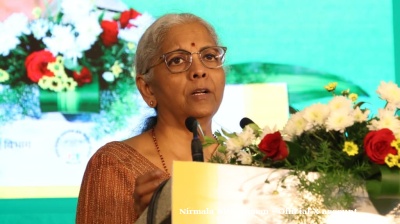The number of young Ukrainians fleeing the war and seeking asylum in Germany has surged, following Kyiv's decision to partially lift its travel ban for men aged 18 to 22, according to figures from the German Interior Ministry, reported by Die Welt.
Ukrainian asylum applications in Germany have ballooned tenfold, from around 100 per week before the policy change to approximately 1,000 per week in recent months, according to local data.
The regulation, which Kyiv implemented earlier this year, allows men under 22 who were already abroad or studying abroad to extend their stay or travel more freely — a move officials framed as a minor adjustment aimed at mitigating growing criticism of Bankova’s increasingly aggressive conscription tactics.
Ukrainian politicians have denied that the change has prompted a large-scale departure of draft-age men. However, the German data suggests otherwise.
The sharp increase in asylum applications, overwhelmingly from young men, has raised concerns in both Berlin and Brussels about the potential impact on Ukraine’s mobilisation efforts and broader EU migration policy, which could give Russia the edge on numbers.
Ukraine introduced a blanket travel ban for men aged 18 to 60 shortly after Russia’s full-scale invasion in February 2022, in an effort to maintain sufficient manpower for its armed forces. Exceptions have since been made for humanitarian, educational and professional reasons, but Kyiv has faced growing pressure over the social and political implications of conscription.
The Interior Ministry did not provide a detailed age breakdown of the new asylum seekers but confirmed to Die Welt that most are young and male, consistent with Ukraine’s revised policy.
Ukrainian authorities have defended the decision, arguing it affects a relatively small group and does not undermine military readiness. “There is no mass exodus,” senior officials have said, insisting that enlistment and mobilisation measures remain in place.
Still, the sharp increase in asylum claims in Germany — which already hosts over 1.1mn Ukrainian refugees — may complicate EU coordination on migration policy and military assistance. With Ukraine preparing for a third year of full-scale war, Western governments are watching closely for any signs of mobilisation fatigue or domestic instability.
German officials have not indicated plans to alter their asylum policy in response but have acknowledged the numbers are “notable and being monitored.” The development comes as EU capitals continue to debate burden-sharing mechanisms and support packages for Ukraine in 2025.
Desertions swell
The exodus of young men, thanks to the easing of travel restrictions, comes on top of reports of the number of desertions from the Armed Forces of Ukraine (AFU) swelling.
Over the past year, twice as many military personnel have left their units without authorisation in Ukraine as during the first two and a half years of the conflict, according to the Ukrainian publication Strana, citing the Prosecutor General's Office.
According to the agency, a total of nearly 290,000 criminal cases for unauthorized abandonment and desertion were opened during the conflict. Between January 2022 and September 2024, 90,000 cases were opened, and another 200,000 in the last year. Experts says that the true number of those who went AWOL is almost certainly significantly higher than the official figures.
In August, Ukrainska Pravda, citing the Prosecutor General's Office, reported that 110,511 cases of unauthorised absence from service in the Ukrainian army had been registered since the beginning of 2025 – more than all the cases brought in the previous three years of the conflict with Russia combined.
The lack of manpower and falling number of fresh recruits is having a catastrophic effect on the AFU’s ability to defend the frontline in Donbas, where kilometre-long unmanned holes are opening up, Ukrainska Pravda reported earlier this month.
News

Trump authorises CIA covert operations in Venezuela to topple Maduro
The White House has acknowledged granting the Central Intelligence Agency sweeping powers to conduct covert operations aimed at unseating President Nicolás Maduro, the NYT reported.

India’s finance minister to miss upcoming IMF and World Bank meetings
India’s Finance Minister Nirmala Sitharaman will not attend this week’s annual meetings of the International Monetary Fund and World Bank in Washington, as trade negotiations between New Delhi and Washington remain unresolved.

US may double support for Argentina to $40bn conditional on policy reforms
Washington buys Argentine pesos and mulls creating a new private sector-led $20bn debt facility, which would bring total support to $40bn with the existing swap line, Treasury Secretary Bessent said.

Malaysia plans social media ban for children under 13, following Singapore's lead
Under Kuala Lumpur’s proposal, all social media platforms will be required to implement mandatory identity verification systems to prevent underage users from creating accounts.




